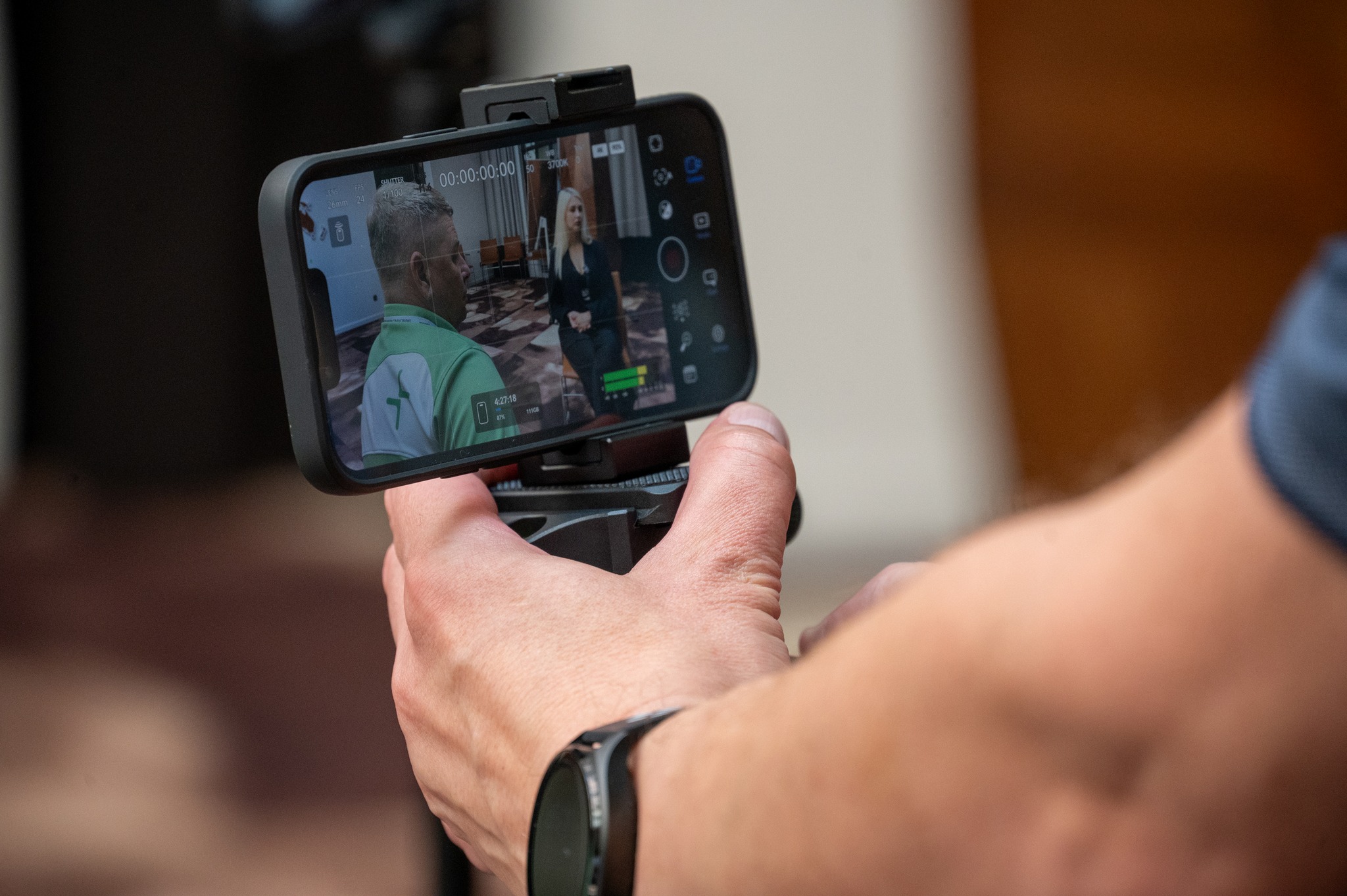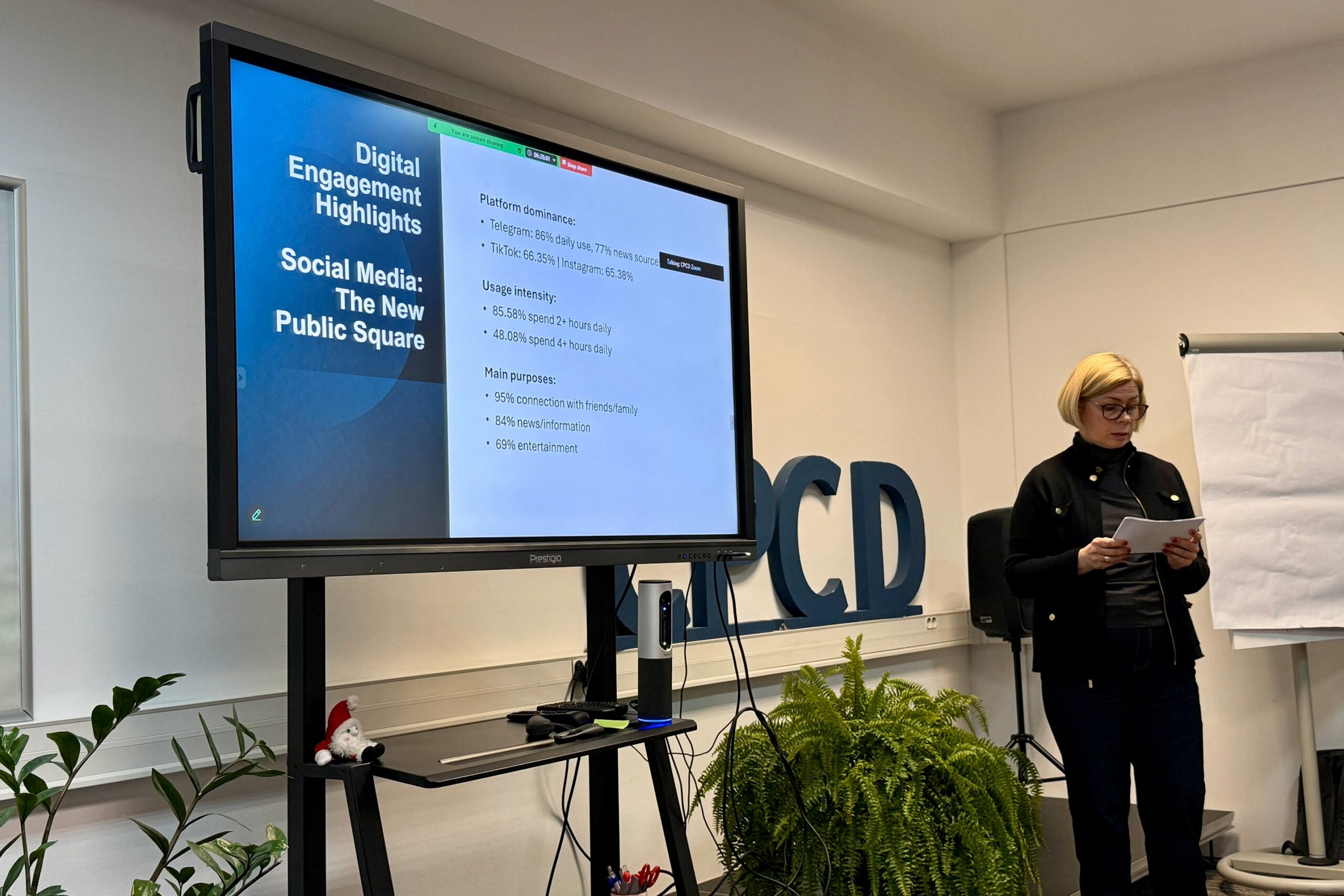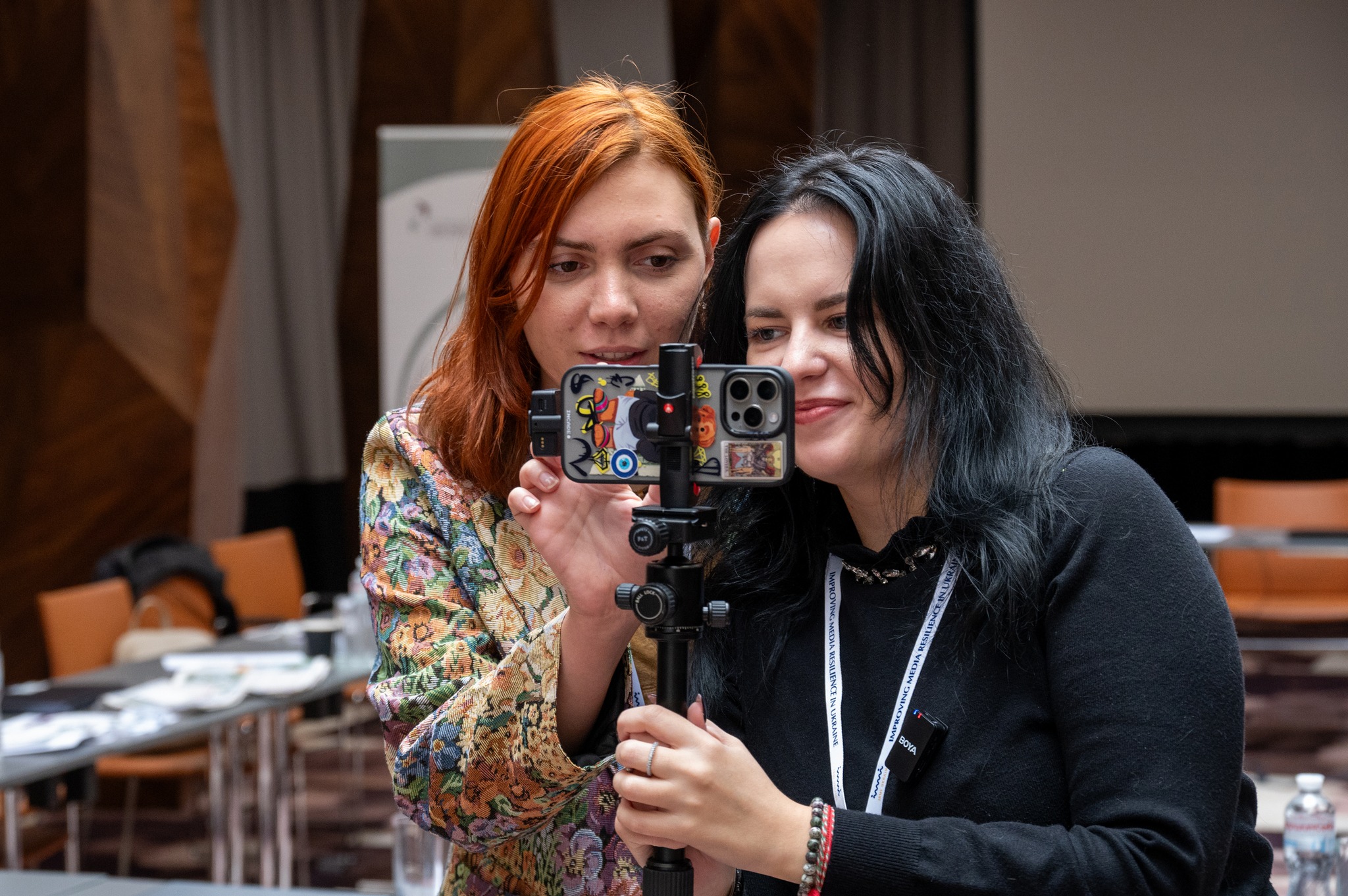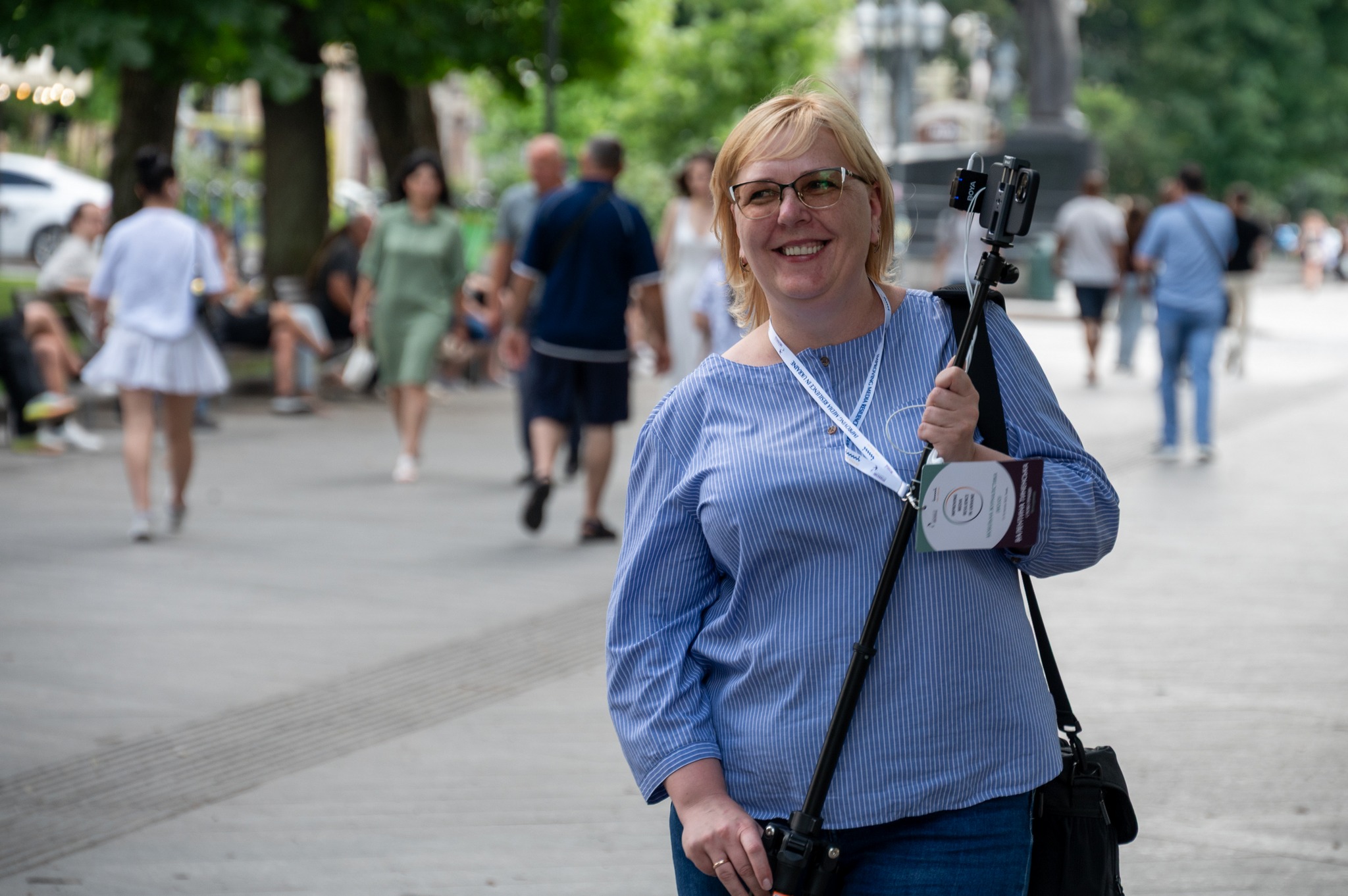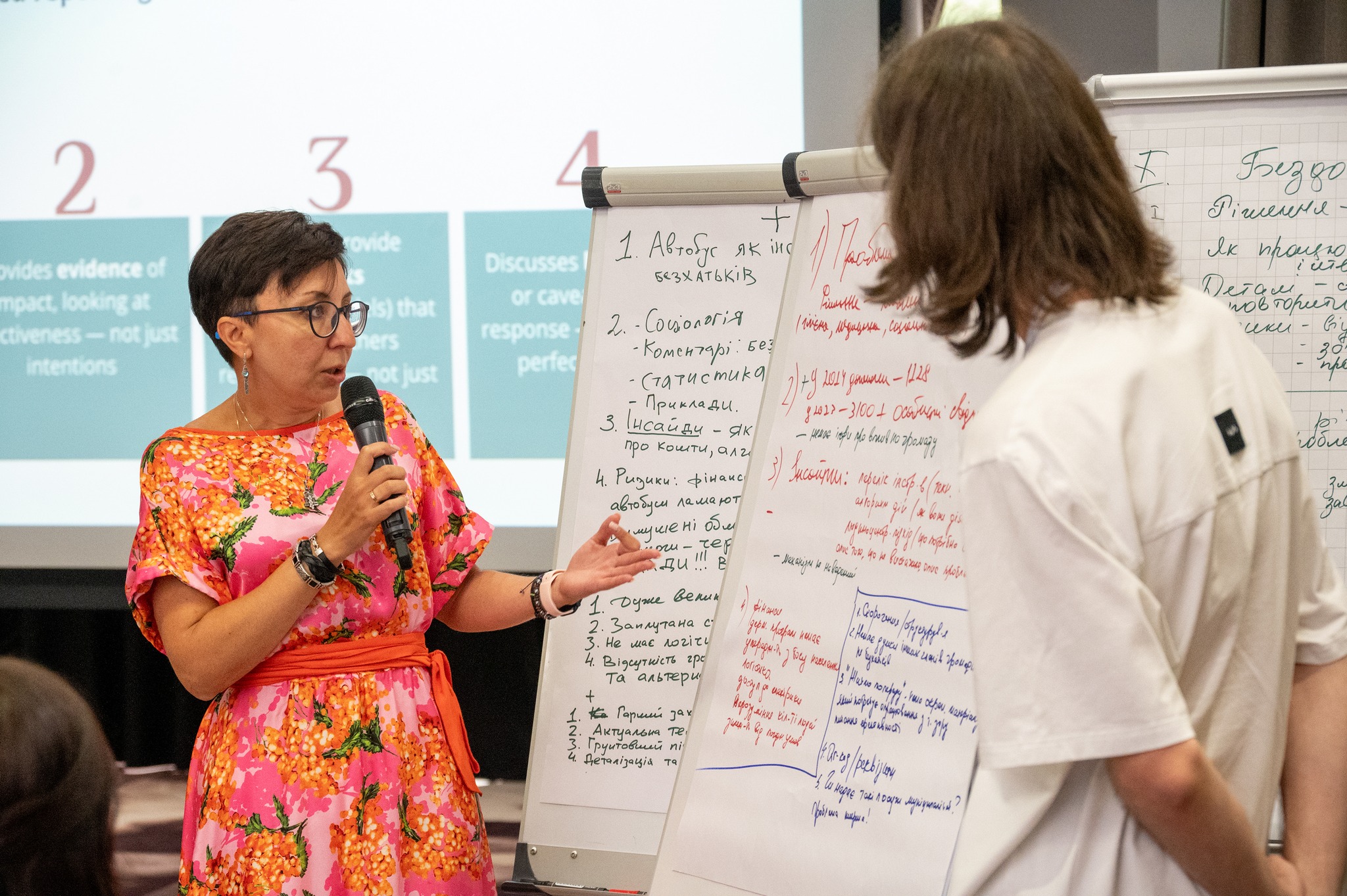Mobile Journalism: Raising the Bar

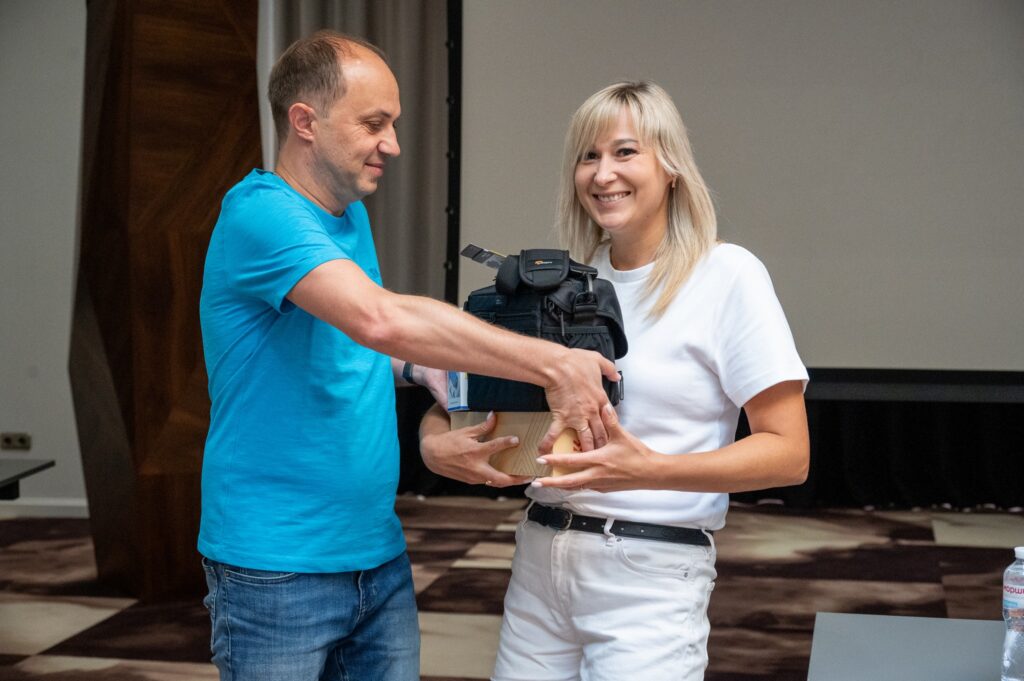
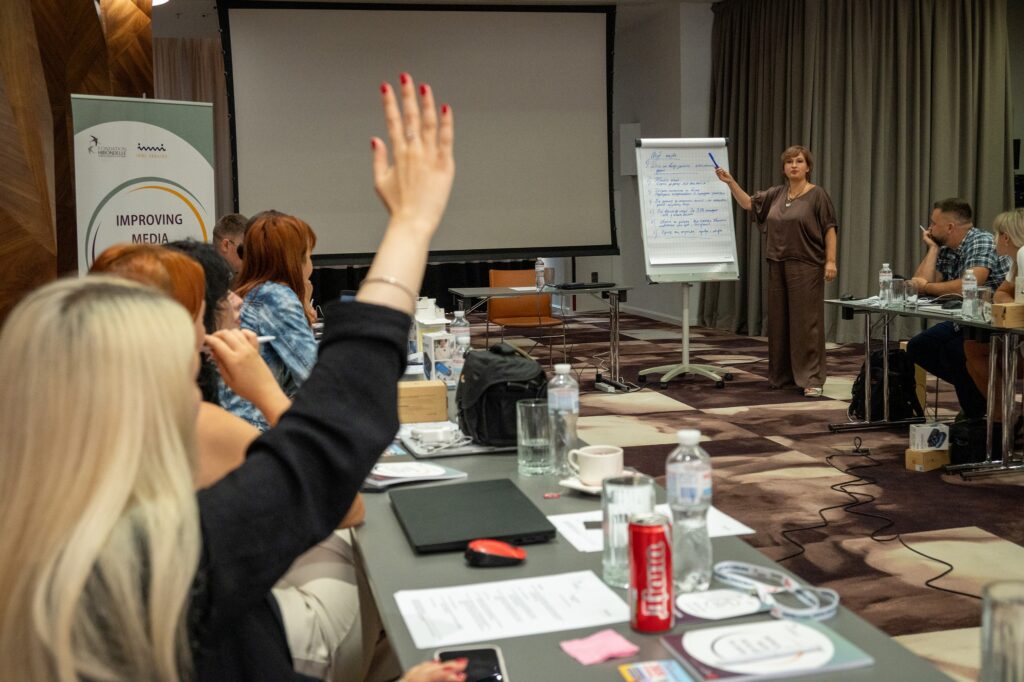
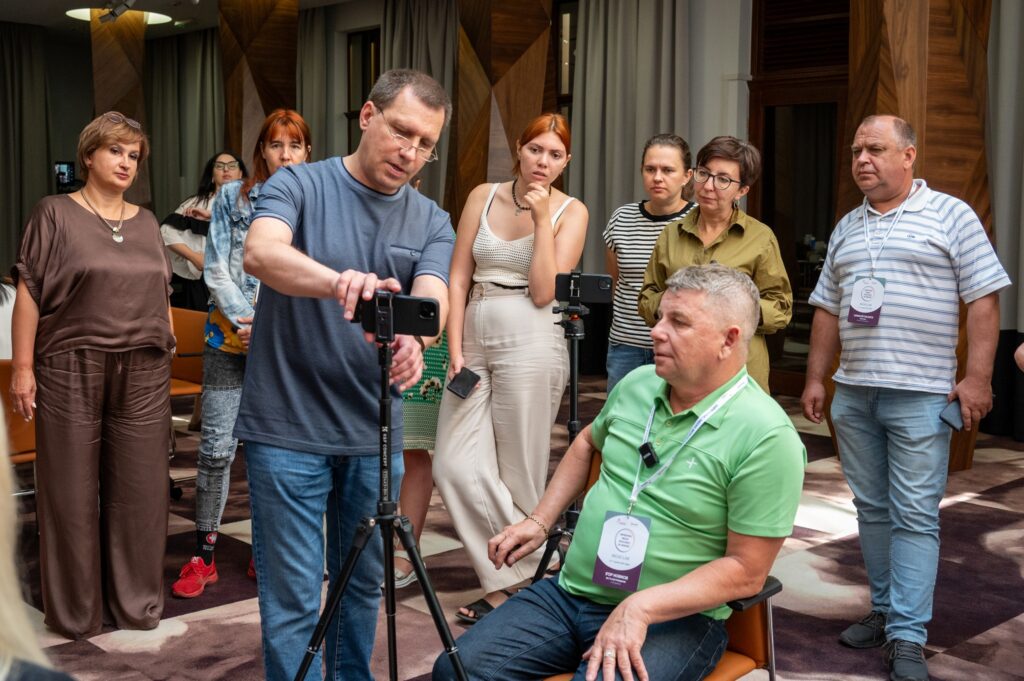
Resistance centres, children on the frontline, war memorials and abandoned animals. These are among the stories being crafted by journalist pairs from across Ukraine at this week’s training in Lviv. Each partner filmed footage in their home city before collaborating here – creating videos that resonate with audiences in both locations.
This is the concept behind the mobile journalism training now underway. Experienced journalists and editors are mastering MOJO filming techniques using equipment IRMI provided free to newsrooms at the session’s start. They’re exploring storytelling, learning to film and edit two-phone interviews in any conditions – creating studio-quality content – producing mobile reports, recording professional audio and shooting teaser packages in pairs. Each newsroom also received modern wireless microphone systems.
“Print journalists struggle to think visually,” says trainer Olena Astrakhovych. “They need skills in story development, understanding how to hold viewers’ attention and convey the authors’ message.”
Since our first MOJO training sessions, the professional standard has transformed – journalists’ experience, skills and capabilities have grown significantly. Tasks have become more ambitious: each pair must create a joint story linking footage from two Ukrainian cities, with additional filming in Lviv. The results are impressive. Participants now master live broadcasting with multiple cameras, 4K interview techniques with reframing in post-production, data visualisation and sourcing diverse experts and contributors. Stories have become multi-layered, compelling and relevant across regions. Editing day means selecting material, cutting excess, correcting errors and weaving shots into video narratives.
“Stories have become higher quality, more thorough, with deeper exploration. Topics are more diverse. Work with interviews, titles and graphics shows real confidence,” says Yuriy Vasyliev, IRMI trainer.
Yulia Savva, Gard.City: “This training felt like stepping up a level. More complex stories, new equipment to master. Combining fragments from different regions, even countries, into one narrative isn’t easy. Working in pairs was brilliant – together we managed it. I’d love to learn how others create graphics for their videos – that’s class!”
Natalia Chaika, RIA Pivden: “Journalism without crisis doesn’t exist. Today’s story production was pure crisis management. We handled it reasonably well, though there’s room for improvement. The mentors were incredibly supportive. The journalism community produced incredible stories – especially the minute’s silence piece, which I’ll use as my benchmark.”
Yana Lazoryk, TRK RAI: “Another brilliant, productive training. I value working with colleagues from different regions, newspapers, radio and TV – their work in hot zones is inspiring. Today’s winning story absolutely deserved first place. It demonstrates incredible dedication, strength and resilience from colleagues in conflict areas. Thank you for sharing your experience.”
The training is part of the Improving Media Resilience in Ukraine Project, implemented by Fondation Hirondelle (Switzerland) and IRMI, Institute for Regional Media and Information (Ukraine). Funded by Swiss Solidarity.


